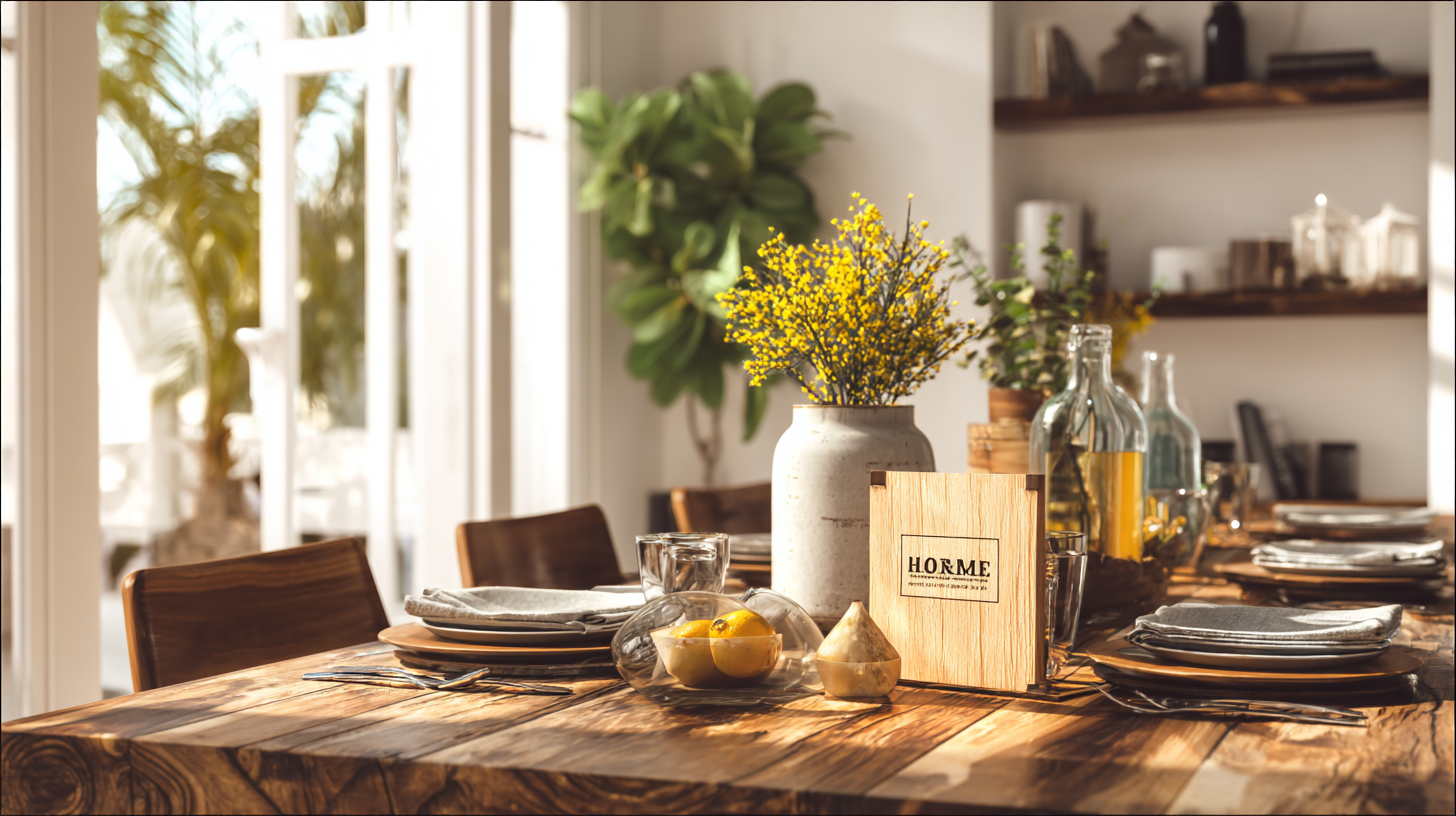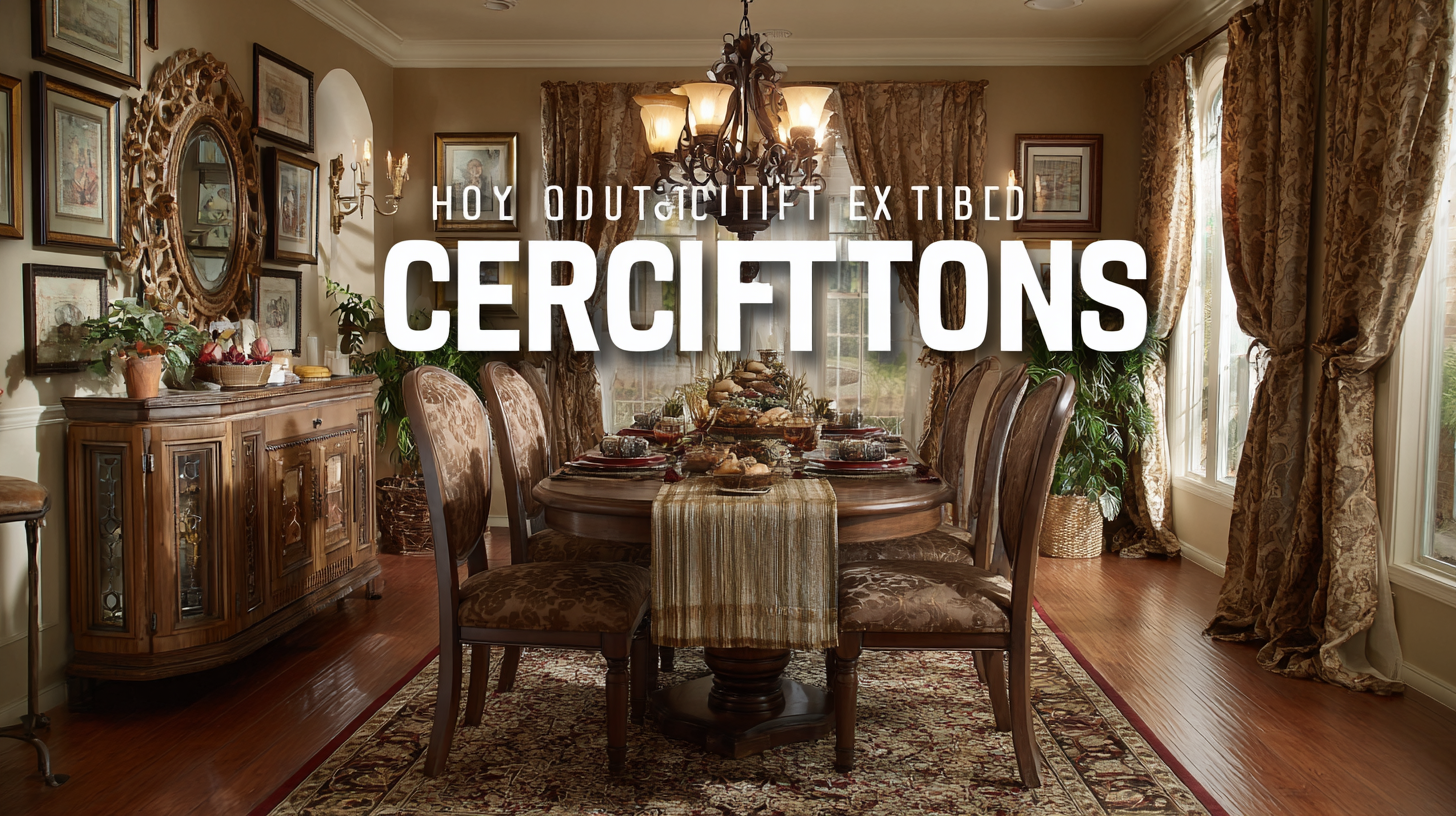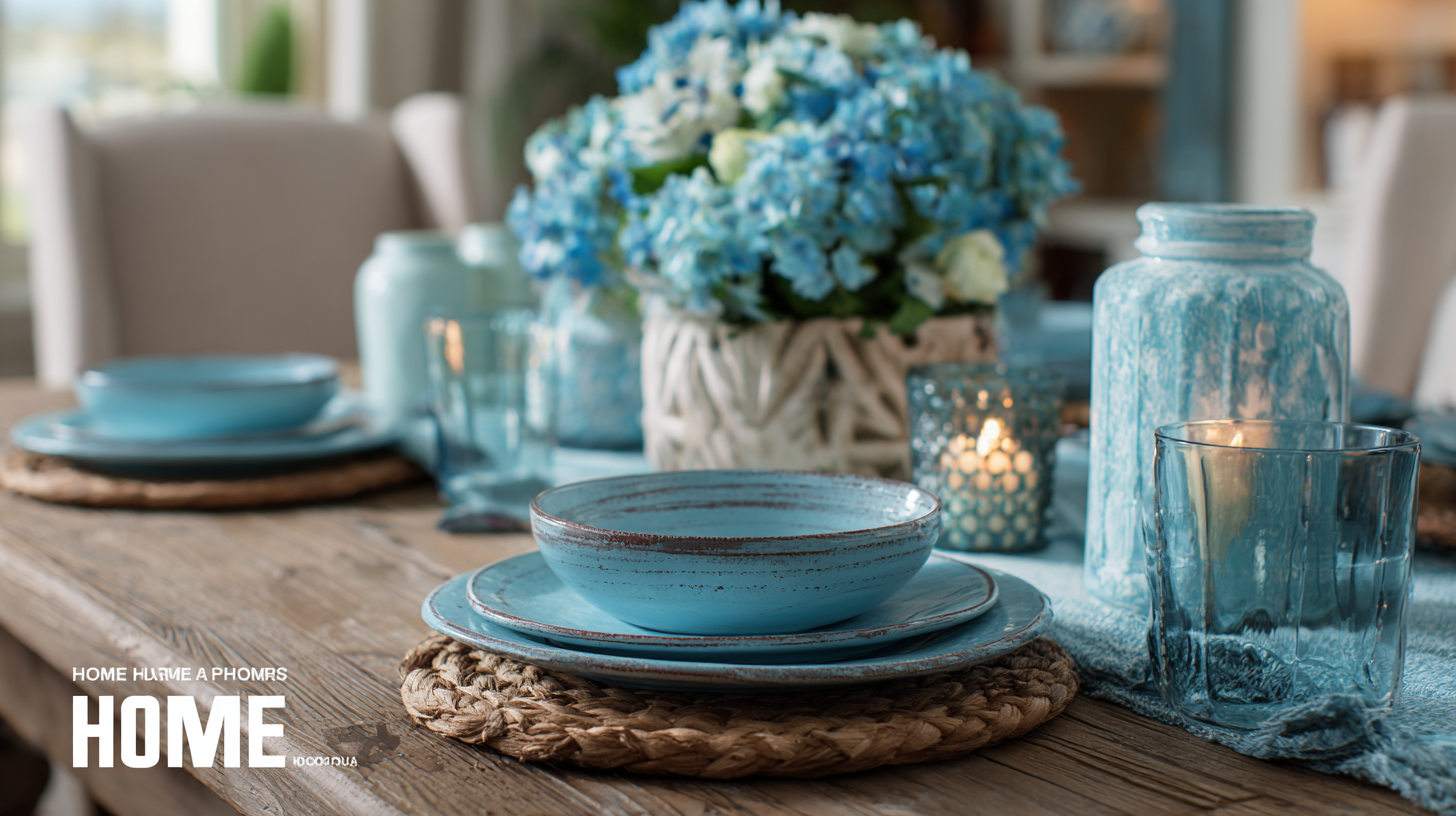How to Navigate Import Export Certifications for the Best Home Decor Dining Table
Navigating the complexities of import export certifications is crucial for anyone in the home decor industry, particularly when it comes to sourcing the best home decor dining tables. According to a recent report from the International Trade Administration, the global home furniture market is projected to exceed $300 billion by 2025, with a significant portion attributed to dining tables that blend style with functionality. Consumers are increasingly seeking high-quality, sustainable products, making it essential for importers and exporters to understand the necessary certifications that ensure compliance with safety and environmental standards. By grasping these regulations, businesses can not only enhance their market presence but also cater to the evolving preferences of buyers, ultimately leading to more successful, competitive offerings in the lucrative home decor dining table segment.

Navigating the Complexities of Import Export Certifications for Home Decor
Navigating the complexities of import-export certifications for home decor items, particularly dining tables, can be daunting. As an importer or exporter, understanding the specific requirements for certifications is crucial to ensure compliance with local and international regulations. Each country has its own set of standards that govern the materials used, safety certifications, and environmental impact assessments. For dining tables, this often includes certifications related to the timber sourcing and the manufacturing processes, ensuring that the products are both sustainable and safe for consumers.
Moreover, engaging with the right certifying bodies and understanding the documentation required can save time and resources. It's advisable to conduct thorough research into your target market's regulations and potentially collaborate with local experts who can guide you through the intricate certification process. By proactively managing these certifications, you not only adhere to legal requirements but also enhance your brand's credibility, appealing to environmentally-conscious consumers who increasingly prioritize sustainability in their purchasing decisions.
Understanding the Importance of Compliance in the Dining Table Industry
In the dining table industry, compliance with import-export certifications is crucial for maintaining product integrity and safety. The recent compliance crackdown in Delhi’s restaurant sector illustrates the high stakes of adhering to licensing and regulatory standards. Without proper certifications, businesses not only risk penalties but also the trust of their consumers. As per industry standards, a significant percentage of dining tables are now required to meet safety regulations regarding volatile organic compounds (VOCs), including formaldehyde levels, which are known to pose health risks.
Moreover, aligning product designs with authentic standards enhances not just aesthetic appeal but also compliance. Authentic design principles advocate for sustainable materials and responsible sourcing, which are increasingly important to consumers conscious of environmental impacts. A report indicates that 70% of consumers prioritize eco-friendly practices when making purchasing decisions. Thus, navigating import-export certifications effectively can lead to greater market acceptance and consumer loyalty, provided that brands remain committed to quality and safety standards.
Navigating Import Export Certifications for Dining Tables
| Certification Type | Issuing Authority | Purpose | Compliance Requirements | Validity Period |
|---|---|---|---|---|
| FSC Certification | Forest Stewardship Council | Sustainable forestry practices | Document proof of sourcing, regular audits | Annual renewal |
| CE Marking | European Union | Product safety and compliance | Testing and documentation for safety standards | Indefinite, subject to compliance |
| ISO 9001 | International Organization for Standardization | Quality management systems | Demonstrate effective quality management | 3 years |
| CARB Certification | California Air Resources Board | Formaldehyde emissions | Testing, product compliance, labeling | Varies based on product type |
| BIFMA Certification | Business and Institutional Furniture Manufacturers Association | Durability and safety standards | Pass performance tests, labeling | Indefinite, subject to compliance |
Key Import Export Certifications Relevant to Home Decor Products
 When it comes to importing or exporting home decor products like dining tables, understanding the key certifications is crucial. These certifications not only ensure compliance with international standards but also enhance the credibility of your product in a competitive market. Common certifications include the ISO 9001, which ensures quality management systems are in place, and the Forest Stewardship Council (FSC) certification, which verifies that wood products are sourced sustainably. Familiarizing yourself with these certifications can significantly impact your business operations and reputation.
When it comes to importing or exporting home decor products like dining tables, understanding the key certifications is crucial. These certifications not only ensure compliance with international standards but also enhance the credibility of your product in a competitive market. Common certifications include the ISO 9001, which ensures quality management systems are in place, and the Forest Stewardship Council (FSC) certification, which verifies that wood products are sourced sustainably. Familiarizing yourself with these certifications can significantly impact your business operations and reputation.
Additionally, adhering to safety standards such as the ANSI/BIFMA certification is essential for furniture products. This certification indicates that your dining tables meet rigorous safety and performance requirements, which is particularly important in markets that prioritize consumer safety. Moreover, understanding the specific regulations of the destination country regarding health and environmental impacts can streamline the import/export process. By securing these essential certifications, businesses can not only increase their marketability but also promote sustainable practices that resonate with modern consumers.
Analyzing the Impact of Regulatory Changes on Global Trade in Dining Tables
Regulatory changes in the import-export landscape can significantly affect global trade, particularly in niche markets like home decor dining tables. As countries implement new trade policies and impose stricter certification requirements, manufacturers and exporters must adapt to ensure compliance. For instance, safety standards and environmental regulations are becoming increasingly stringent. These changes require companies to engage in thorough certification processes that can prolong delivery times and increase costs. Understanding these regulations is essential for businesses seeking to maintain competitive pricing and product availability in the international market.

Moreover, shifts in trade agreements can open or restrict markets for dining tables. Countries may reduce tariffs on imports or establish trade partnerships, allowing for easier access to materials and finished products. However, companies that fail to stay informed about regulatory adjustments may face disruptions, penalties, or even bans on their products. Therefore, continuous education on relevant trade laws and certifications, coupled with strategic adaptation to these regulatory landscapes, is crucial for exporters looking to thrive in the evolving global market for home decor dining tables.
Strategies for Ensuring Quality and Safety in Imported Home Decor Items
When importing home decor items like dining tables, ensuring quality and safety is paramount. One of the first strategies is to thoroughly research the certifications required in your target market. These often include safety standards and health regulations that vary by region. For instance, tables made from certain materials may need to meet specific emission standards to ensure they are free from harmful chemicals. Partnering with manufacturers who are familiar with these certifications can streamline the process and help avoid potential compliance issues.
In addition, conducting quality control inspections before the shipment can significantly enhance product safety. This involves checking the materials, construction, and finishes of the dining tables to ensure they meet your specifications. Employing third-party inspection services can provide an objective assessment and help catch any defects early. Overall, a proactive approach to certifications and quality checks not only protects consumers but also strengthens your brand’s reputation in the competitive home decor market.
